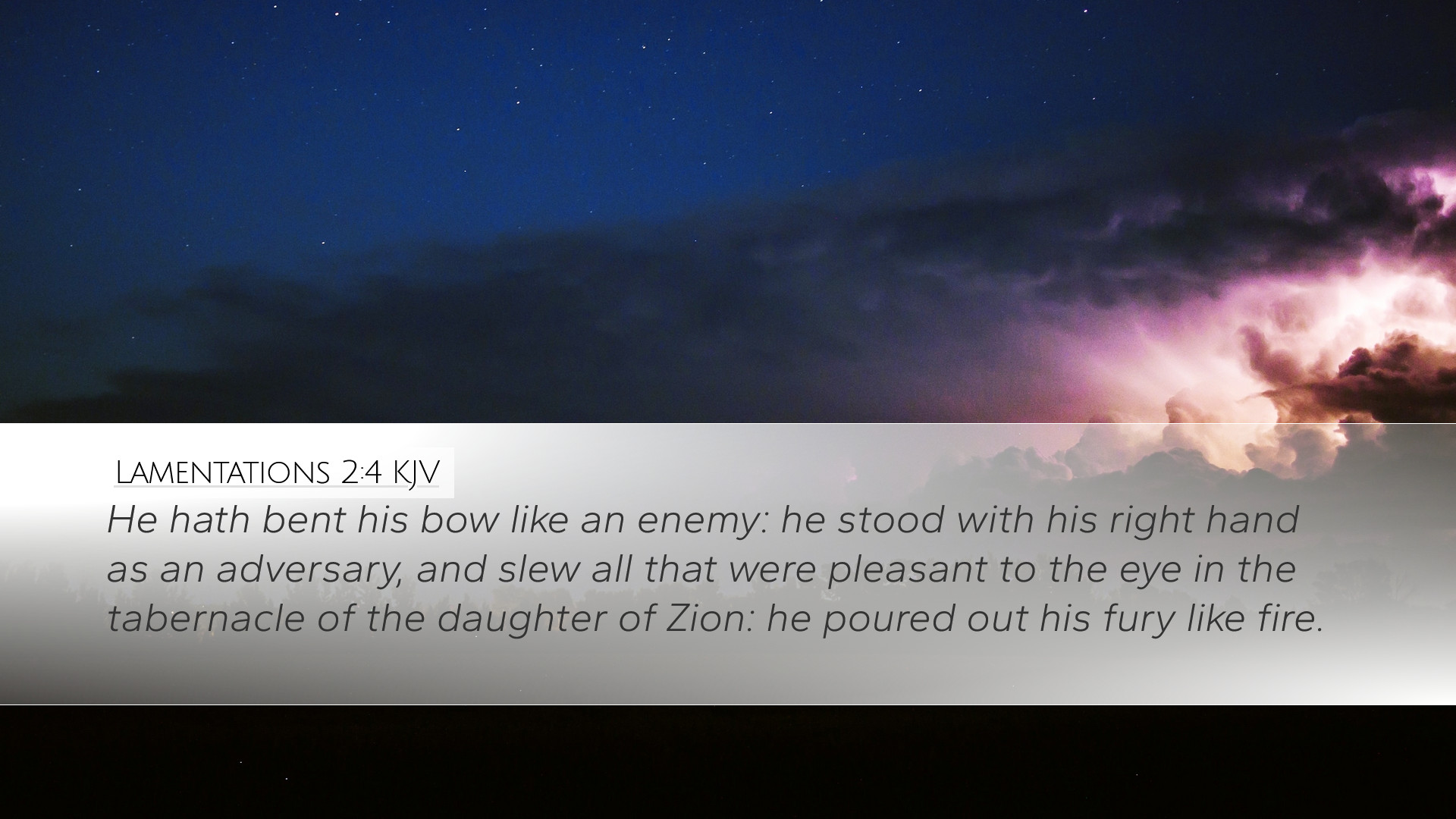Lamentations 2:4 – Verse Commentary
Lamentations 2:4 states, "He stood as an enemy; he stretched out his hand against his adversaries, and slew all that were pleasant to the eye; in the tent of the daughter of Zion, he poured out his fury like fire."
This verse encapsulates the profound distress and judgment faced by Jerusalem after its fall.
Contextual Overview
The book of Lamentations is traditionally attributed to the prophet Jeremiah, who mourned the destruction of Jerusalem in 586 B.C. The setting of the lament is crucial for understanding the emotional and theological weight of the text.
Commentary Insights
Historical Perspective
According to Matthew Henry, this lamentation highlights the transition of God from a protector to an adversary in the eyes of His people due to their iniquity. The imagery used reflects not just divine displeasure but also the catastrophic consequences of sin.
Divine Discipline
Albert Barnes emphasizes the notion of God as an "enemy" acting in judgment, which underscores the seriousness of divine retribution. Whereas God had once defended His people, their persistent disobedience allowed the judgment to be enacted.
Imagery and Symbolism
In this verse, the term "pleasing to the eye" refers to the elements that once characterized the beauty and strength of Zion. Adam Clarke elaborates on this, noting that God's wrath has not only brought destruction but has also obliterated the very aspects of life and culture that were once celebrated.
Theological Implications
- God's Sovereignty: The verse illustrates God's absolute sovereignty over nations and His ability to wield wrath as an instrument of justice.
- Human Responsibility: The consequences faced by Jerusalem serve as a stark reminder that human actions, especially collective disobedience, lead to divine judgment.
- Response to Suffering: This lament serves as a model for believers who may find themselves in times of suffering and despair, as it encapsulates a raw expression of grief directed toward God.
Application for Today
The lamentation found in Lamentations 2:4 invites modern readers—pastors, students, theologians, and scholars—to reflect on the nature of God’s justice and the condition of the heart. As believers engage with this text, it beckons them to examine how contemporary society mirrors the disobedience of ancient Israel.
Furthermore, the metaphor of fire pouring out God’s fury reminds today’s Church of the transformational power of divine judgment. It is a call for repentance and a reminder of God’s holiness as well as His call to restoration through acknowledging sins.
Concluding Thoughts
In conclusion, Lamentations 2:4 is a poignant reminder of the seriousness of God’s role as judge while also reiterating the necessity of repentance and seeking restoration. The insights provided by historical commentators deepen our understanding and offer timeless truths about God’s nature, our human condition, and the urgency of turning toward Him in faith.


